-
 Make the Miraculous Neem Oil a Part of Your Daily Life: Discover the Numerous Uses of Neem Oil and How It Can Give You a Radiant Skin, Lustrous Hair and Overall Health and Wellbeing! (2021)
Make the Miraculous Neem Oil a Part of Your Daily Life: Discover the Numerous Uses of Neem Oil and How It Can Give You a Radiant Skin, Lustrous Hair and Overall Health and Wellbeing! (2021)
-
 Is Your Skin Looking Dull and Lifeless? Follow Our Skin Care Tips and Adopt These 5 Healthy Habits and Watch Your Skin Glow Vibrantly (2020)
Is Your Skin Looking Dull and Lifeless? Follow Our Skin Care Tips and Adopt These 5 Healthy Habits and Watch Your Skin Glow Vibrantly (2020)
-
 Hair Fall: Causes, Home Remedies and Prevention! 10 Home Remedies for Hair Fall You Can Try Safely at Home!
Hair Fall: Causes, Home Remedies and Prevention! 10 Home Remedies for Hair Fall You Can Try Safely at Home!
Textbook Definition of Stress and Anxiety
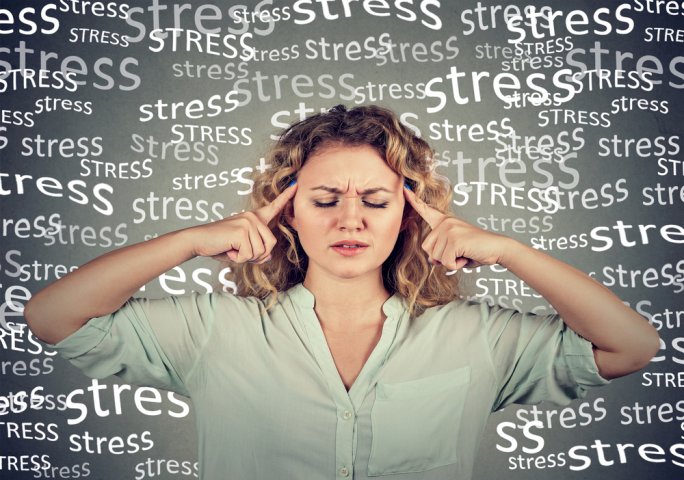
Most people experience stress and anxiety at one point or the other in their lives. Depending on the incident’s severity, either of these conditions can impact an individual’s life. In medical terms, stress is termed a physical, emotional, or mental state that leads to physical or psychological tension. Stress is influenced by either external or internal situations like medical procedures, environmental or psychological and social situations.
Anxiety, on the other hand, is a feeling brought about by nervousness, uneasiness arising out of something that may lead to uncertainty or a strong desire for something to happen. Stress and Anxiety can lead to major mental and physical breakdowns and are apparent responses to life situations. They may, at some point, become difficult to manage and require professional aid.
How Are They Related?
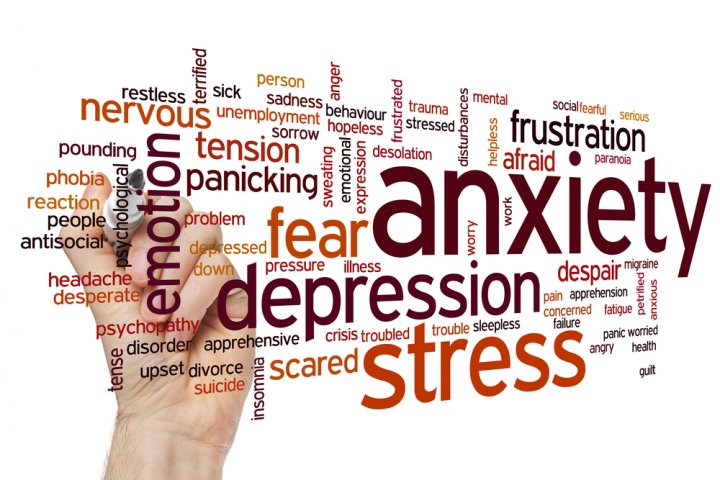
There’s a fine line between stress and anxiety. While stress is a common cause for anxiety and is a natural response to a threatening situation, anxiety is an individual’s specific response to stress, and it stems from within, leading to apprehensions and fear about what’s to come. The ‘fight-flight-freeze’ factor is a common thread between stress and anxiety, and both share more or less the same physical and emotional symptoms of headaches, high BP, tension, listlessness, and insomnia.
Difference Between Stress & Anxiety
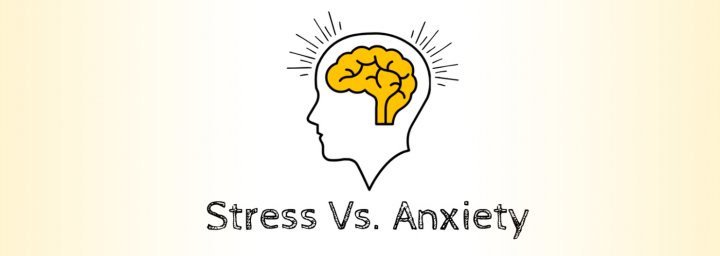
The causes behind stress and anxiety differ in the sense that stress focuses on external pressures that we find difficult to manage. It brings about a chemical change in the brain and initiates feelings of nervousness, anger, or frustration. It can also have a positive effect on excitement. Feeling stressed over an extended period can take an adverse toll on the mind and body. Stress is caused more by external triggers like a work deadline, fights with loved ones, or long term causes like chronic illness, debts, etc. Stress leads to symptoms like digestive troubles, anger, irritations, muscle pain, or fatigue.
On the other hand, anxiety is characterized by excessive worrying that doesn’t go away with or without the stress triggers. Anxiety is difficult to figure out at times, only because it focuses on fears of things that can be threatening or be nervousness related to the anxiety itself.
Stress: Understanding Types of Stress

Stress is a normal emotion that’s categorized into acute and chronic stress. Acute stress is short-term, and you feel it when you have a conflict with a loved one or when you slam on the brakes while driving, or you’re skiing down a steep slope. This form of stress can help you manage dangerous situations, and it also occurs when you’re attempting something new and exciting. Chronic stress, on the other hand, lasts longer owing to money issues, unhappy relationships, or job challenges. This form of stress can go on for weeks or months and can also lead to health complications.
Impact on Physical Body
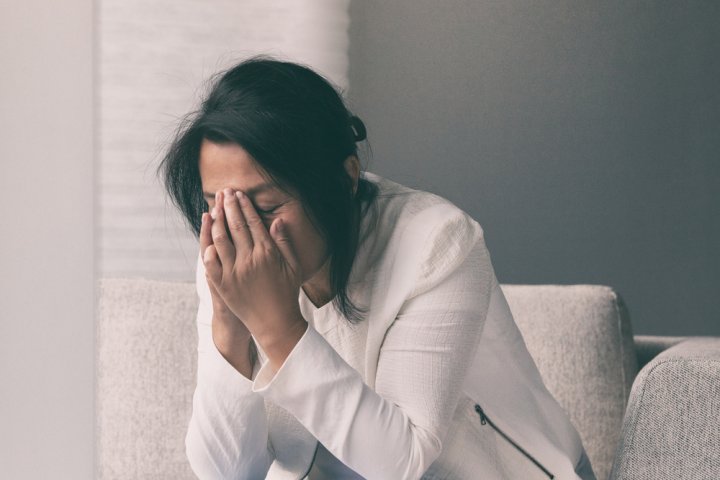
The impact of stress on your body leads to the release of hormones, which make your brain alert, lead to muscle tension, and increase your pulse rate. These reactions are good in a way that they can help you handle your situation effectively and protect your body at the same time. But when you’re dealing with chronic stress, even though there’s no immediate danger, your body stays alert and, over some time, puts you at risk of high blood pressure, diabetes, obesity, heart diseases, depression, or skin problems. And if you already have a health condition, stress can make it worse.
Know the Symptoms of Stress
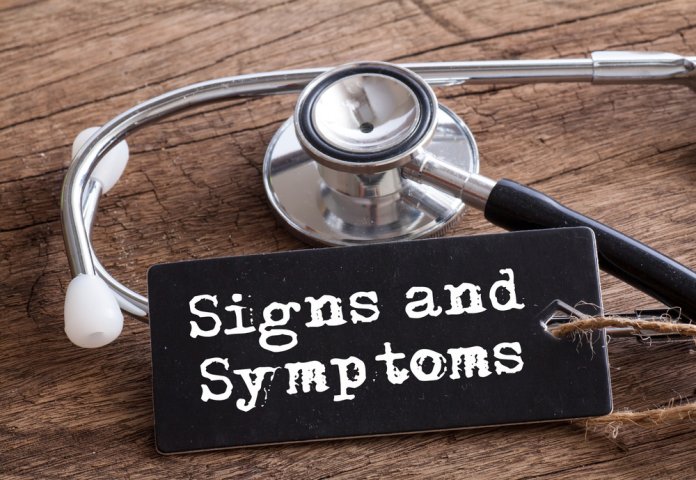
Everybody goes through physical changes over a while, and you may not necessarily know the cause behind these changes. Some of these changes may be characterized by stress and include both physical and emotional symptoms like forgetfulness, lack of energy or focus, fatigue, constipation or diarrhea, frequent aches and pains, sexual problems, headaches, substance abuse, trouble sleeping or excessive sleeping, stiffness in the jaw or neck, and weight loss or weight gain.
Anxiety: Understanding Types of Anxiety
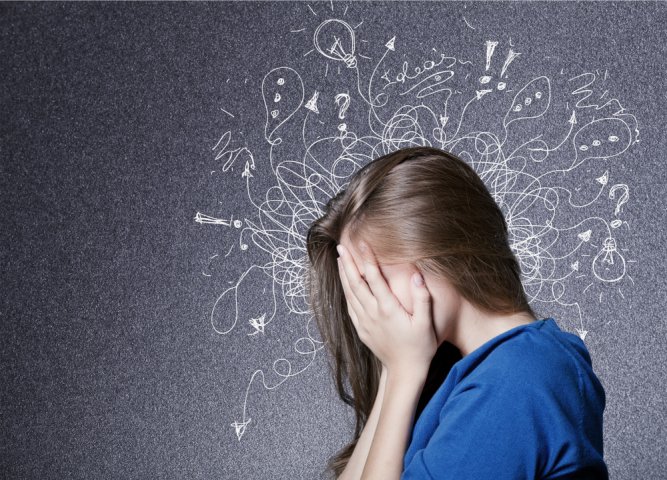
Anxiety is typically an emotional reaction, which is your brain’s way of responding to stress. Occasionally, it is alright to have. However, anxiety disorders are different. They are a bunch of mental illnesses that cause overwhelming fear and unease relentlessly. There’s a generalized disorder that leads you to feel excessive and unrealistic worry with or without reason.
In contrast, a panic disorder induces a sudden and intense fear that leads to you breaking into a sweat, have chest pain or palpitations. It may even feel like a heart attack or choking. Some other anxiety disorders include social anxiety disorder, agoraphobia, separation anxiety, or medically induced anxiety owing to withdrawal from certain drugs, the use of specific medications, etc.
Impact on Physical Body
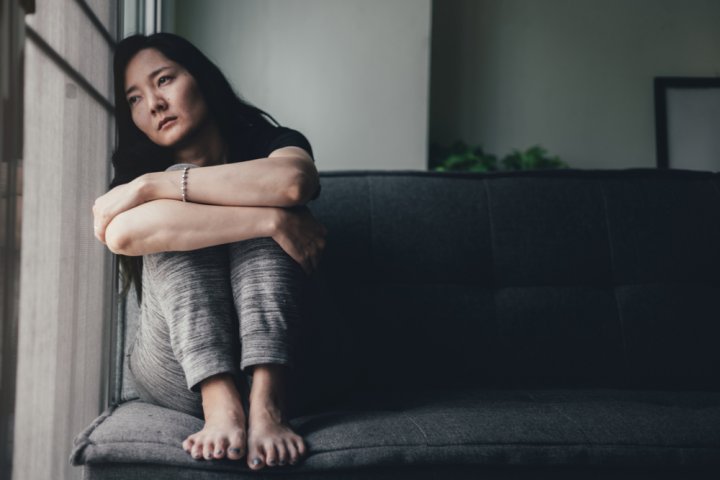
While it is normal to feel anxious now and then, chronic anxiety can affect your quality of life and have severe implications for your physical health. In a short-term attack, anxiety can increase your breathing and heart rate, concentrating the flow of blood to your brain, to prepare you to face an intense situation. An intense situation can make you feel lightheaded or nauseous. Stressful life situations can increase the risk of an anxiety disorder, which may cause symptoms immediately or even years later.
Know the Symptoms of Anxiety
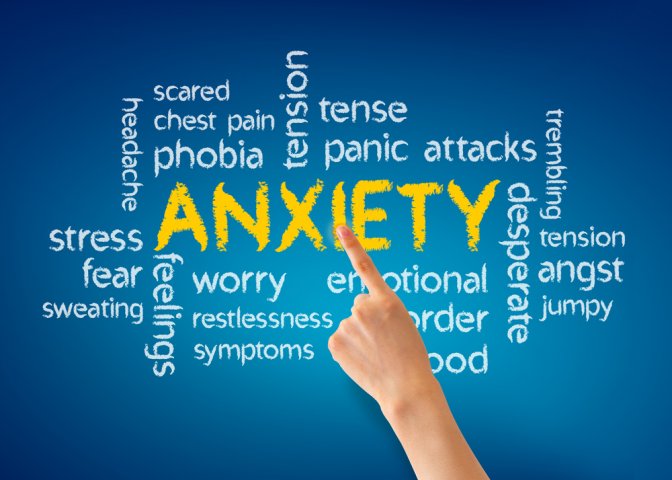
Excessive worrying is one of the most common symptoms arising out of an anxiety disorder and is usually inconsistent with the events triggering it. When you feel anxious, a part of your sympathetic nervous system goes into an overdrive, which leads to a cascading effect throughout your body that includes shaky hands, sweaty palms, racing pulse, and a dry mouth. The body also pushes blood away from the digestive system to your muscles, increases your heart rate, and heightens your senses. Other symptoms include fatigue, restlessness, difficulty in focusing, irritation, tensed muscles, trouble sleeping or erratic sleep patterns, etc.
Managing Stress and Anxiety
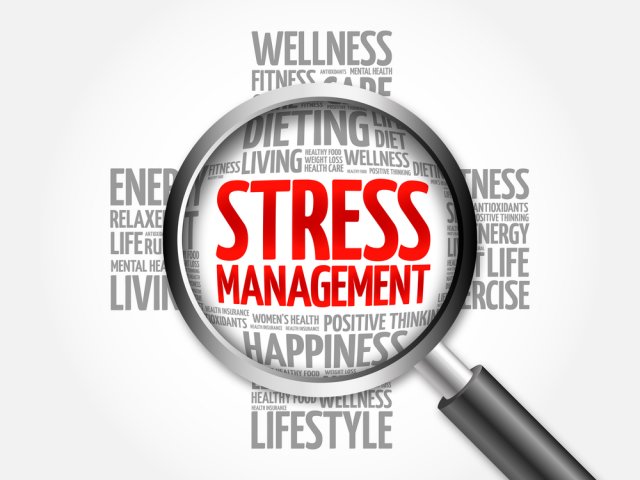
Stress and anxiety are everyday experiences for people in current times. When such conditions start affecting your life, health, and overall well-being, it is imperative that you deal with it at the earliest. Exercising, including supplements in your diet, reducing caffeine intake, increasing your social interactions, chewing gum, writing a journal, practicing yoga, meditation, and conscious breathwork are some of the ways you can manage your stress and anxiety episodes.
When to Bring in Professional Aid

When stress overwhelms you, takes over your life, and prevents you from functioning normally, professional treatment and therapy can be quite useful. When you see anxiety or stress interfering in important parts of your life like relationships, career, or responsibilities, when your reactions and emotions become destructive to the extent that they cause you distress, when you find your physical and mental bodies lethargic and riddled with health problems owing to stress and anxiety, then it is time to seek help. Medical care can help you manage any underlying illnesses, while therapy can teach you useful ways of managing your stress and anxiety.
A Quick Tip to Reduce Stress & Stop Anxiety
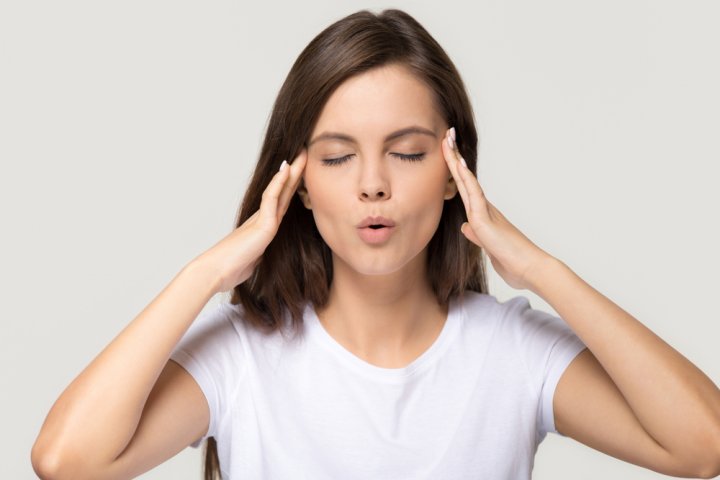
There are innumerable techniques to manage stress and anxiety; however, during the heat of the moment, getting into a mindful pose or taking a walk may not be possible. In such situations, the best thing to do is to engage with one or more of your senses through movement. Identify the best sensory experience that works for you. For instance, if you love listening to music, listen to different kinds until you find something you like and one that uplifts you instantly. Similarly, enjoy the beauty of nature, smell a rose, pet a dog, or indulge in some chocolate!
-
 Best 13 Gym Bags for Every Budget! Look Stylish As You Work on Your Gym Gains with All the Gadgets and Gear You’ll Need in 2022
Best 13 Gym Bags for Every Budget! Look Stylish As You Work on Your Gym Gains with All the Gadgets and Gear You’ll Need in 2022
-
 क्या आपने हाल ही में दर्पण में अपने चेहरे को सामान्य से थोड़ा भरी हुआ है? विभिन्न तरीके जो चेहरे की चर्बी को कम कर सकता है ।
क्या आपने हाल ही में दर्पण में अपने चेहरे को सामान्य से थोड़ा भरी हुआ है? विभिन्न तरीके जो चेहरे की चर्बी को कम कर सकता है ।
-
 Looking Online for the Best Gym Bags for Men and Women? Here are the 10 Best Gym Bags That Look Sophisticated and Easy to Carry Around in (2021)
Looking Online for the Best Gym Bags for Men and Women? Here are the 10 Best Gym Bags That Look Sophisticated and Easy to Carry Around in (2021)
-
 Fuller Face Can be Annoying- There’s No Shapewear for Chubby Cheeks(2020): A Guide on How to Prevent and Reduce Excess Facial Fat.
Fuller Face Can be Annoying- There’s No Shapewear for Chubby Cheeks(2020): A Guide on How to Prevent and Reduce Excess Facial Fat.
-
 जिम जाने के लिए चुने यह 10 2020 के सबसे बेस्ट जिम बैग्स जो है दिखने में बेहद शानदार और बेहतरीन। साथ में कुछ सुझाव और अन्य जानकारी ।(2020)
जिम जाने के लिए चुने यह 10 2020 के सबसे बेस्ट जिम बैग्स जो है दिखने में बेहद शानदार और बेहतरीन। साथ में कुछ सुझाव और अन्य जानकारी ।(2020)
It is Never too Late to Seek Help!
No matter how worse you think your condition is, it is never too late to seek help if you're going through a lot of stress or anxiety. You can merely start with talking about it to someone you trust before you seek out to get professional help. Reach out to your family and friends, and it will be the first step you take towards your mental well-being. We know it's not going to be easy, but as it' said, you take the first step, and half your work is done, and that's all you need to do!


 Highlight the Best Facets of Your Incomparable Beauty: Discover the Best Face Highlighter Currently Available in India and Everything You Need to Know About Using Face Highlighters for Maximum Effect (2023)
Highlight the Best Facets of Your Incomparable Beauty: Discover the Best Face Highlighter Currently Available in India and Everything You Need to Know About Using Face Highlighters for Maximum Effect (2023)
 Forget the Blemishes and Get that Picture Perfect Flawless Radiance on Your Face: Check out the Best Foundations for Oily Skin Currently Available in India and Everything You Need to Know About Makeup Foundations (2023)
Forget the Blemishes and Get that Picture Perfect Flawless Radiance on Your Face: Check out the Best Foundations for Oily Skin Currently Available in India and Everything You Need to Know About Makeup Foundations (2023)
 Make Your Presence Felt Wherever You Go: Discover the Best Perfumes Under 2000 for Both Men and Women to Announce Your Arrival and Make Any Occasion Memorable (2023)
Make Your Presence Felt Wherever You Go: Discover the Best Perfumes Under 2000 for Both Men and Women to Announce Your Arrival and Make Any Occasion Memorable (2023)
 Protect Your Oily Skin from the Harmful Rays of the Sun: Discover the Best Gel Based Sunscreens for Oily Skin and Everything You Need to Know Before Buying One (2023)
Protect Your Oily Skin from the Harmful Rays of the Sun: Discover the Best Gel Based Sunscreens for Oily Skin and Everything You Need to Know Before Buying One (2023)
 Minor Blemishes and Wrinkles Affecting Your Confidence? Check out the Best BB Creams to Conceal Your Worries and Nourish Your Skin to Restore the Healthy, Radiant and Glowing Complexion Back Again (2023)
Minor Blemishes and Wrinkles Affecting Your Confidence? Check out the Best BB Creams to Conceal Your Worries and Nourish Your Skin to Restore the Healthy, Radiant and Glowing Complexion Back Again (2023)
